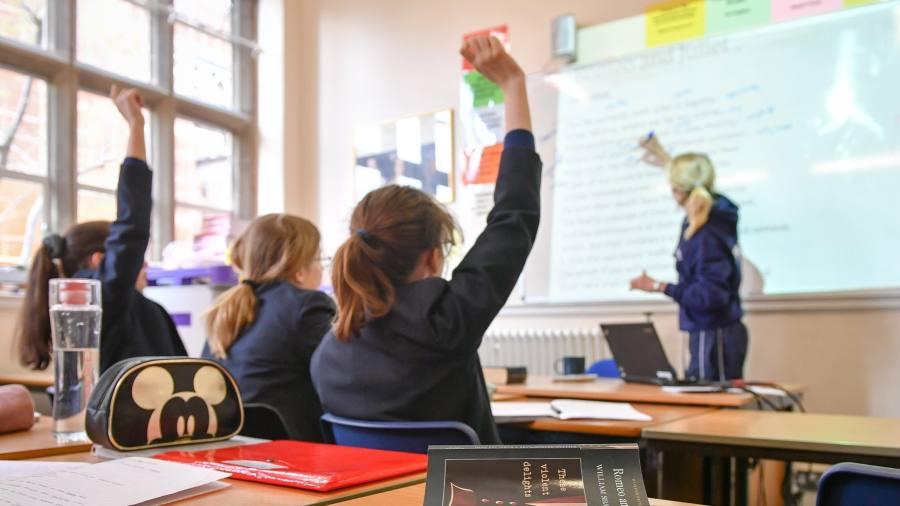Britain’s schools fail legal condition to teach money matters

This post is the newest section of the FT’s Economical Literacy and Inclusion Marketing campaign
A deficiency of assist for academics usually means United kingdom universities are falling limited of lawful requirements to educate financial literacy to all small children, MPs have warned.
In addition, two-fifths of teachers do not know financial training is a lawful curriculum requirement. The all-party parliamentary group for monetary education (APPG) uncovered colleges were nonetheless struggling to educate a matter that has been obligatory given that 2014.
This intended the good influence of creating money literacy a lawful prerequisite was “yet to be yielded”, the MPs mentioned in a report posted on Wednesday.
Jerome Mayhew, the group’s chair, claimed the government and broader society really should enjoy a part in promoting revenue instruction in a planet of “increasingly complex” fiscal programs. “We continue on to undervalue the electric power of economic education and learning to serve our youthful folks and the wider economic system,” he explained.
In the APPG’s survey of far more than 400 lecturers, 70 for every cent stated education was a barrier to training about finance, and all around 50 percent claimed there was no ringfenced price range for instructing monetary schooling in their faculty.
Academics also explained far too quite a few competing priorities made it tough to make time for economic instruction, and far more than half claimed they assumed training finance was “challenging”.
The FT’s Financial Literacy and Inclusion Marketing campaign charity (FLIC) has determined patchy monetary education in colleges as one particular contributor to weak fiscal competence nationally.
“There is large appetite among the the two lecturers and pupils for fiscal training,” explained FLIC’s govt director Aimée Allam. “But there is a huge knowledge gap and a shortage of partaking means. FLIC is assisting lecturers with foolproof lesson designs to foster this very important lifetime skill.”
A 2021 study of 2,000 small children by the London Institute of Banking and Finance uncovered approximately 3-quarters of 15-18 year olds wanted to learn more about managing funds, but only 15 per cent reported university was their key supply of monetary education.
The APPG suggested the federal government back an consciousness-increasing campaign and prolong the legal obligation to teach monetary literacy to primary faculties.
Ofsted, the university inspectorate, really should explicitly look at monetary education and learning when inspecting faculties, the team explained. The APPG extra it was also vital that non-governmental organisations and providers that required to help must create product that suited both how small children realized and the time out there to academics.
Sharon Davies, the chief government of Youthful Enterprise, a youth funds charity that gives the secretariat for the APPG, explained there was a consensus among academics that “more support” was desired to produce economical education.
The Office for Education stated fiscal education remained a compulsory part of citizenship and maths. “Financial education and learning is an essential part of a wide and well balanced curriculum and is very important to guarantee small children leave college sensation self-assured to regulate their revenue, stick to their budgets and make wise money selections,” it mentioned.
Join FT FLIC’s on the web webinar on Thursday 8 March at 1300-1400 GMT 4 things women of all ages have to have to know about funds in all relationships







